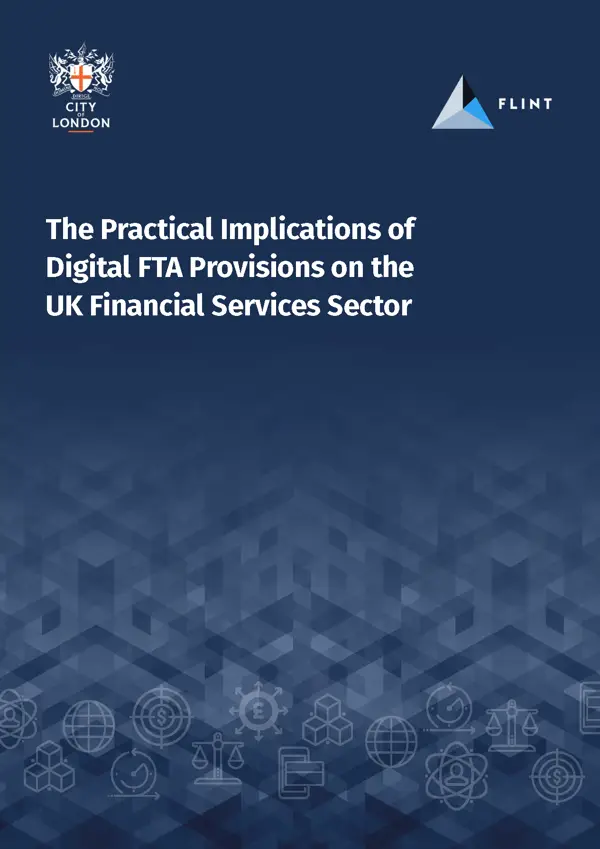Practical Implications of Digital FTA Provisions

‘The Practical Implications of Digital FTA Provisions on the UK Financial Services Sector’, published by the City of London Corporation in collaboration with Flint Global, seeks to outline how the UK financial and professional services (FPS) sector benefits from free trade agreements (FTAs). It also makes a series of recommendations for how UK Government can develop a more holistic approach to trade policy broadening the scope beyond FTAs into areas of regulatory diplomacy.
The FPS sector is already one of the most data intensive trading industries and the ability of firms to transfer data around the world, and freely across jurisdictions, is as important as the ability to sell services and move people.
Yet we are seeing increasing examples of governments and regulators restricting cross-border data flows. Whether this is the result of legitimate policy objectives or ‘digital protectionism’, these moves hinder digital services trade, driving ups costs for consumers and businesses, and ultimately threatening global financial stability.
As one of the few countries currently prioritising trade liberalisation, the UK is in a strong position to set the agenda on digital trade. It should prioritise greater regulator involvement in the negotiating process, as well as attempting to narrow the scope of carve-outs and exceptions. Formal mechanisms should be developed to allow firms to hold governments to account and the flow of data should be facilitated via adequacy decisions or new policy mechanisms.
The UK has the opportunity to build on existing agreements, and further integrate trade and regulatory policy making. The suggestions made in this report outline a significant step forward in ensuring the UK free trade agenda delivers tangible commercial benefits for the financial services sector.
“As the UK writes a new chapter in long trading history, we have an opportunity to set the agenda on digital trade and the flow of data. This issue is vital for our financial services exports and by default to our customers and clients around the world."
Chris Hayward, Policy Chairman of the City of London Corporation
"The UK is well-positioned to be a global leader on digital trade. But to do so, it must prioritise turning rhetoric and treaty commitments into new opportunities and tangible benefits for its companies."
Sam Lowe, Partner at Flint Global and co-author of the report